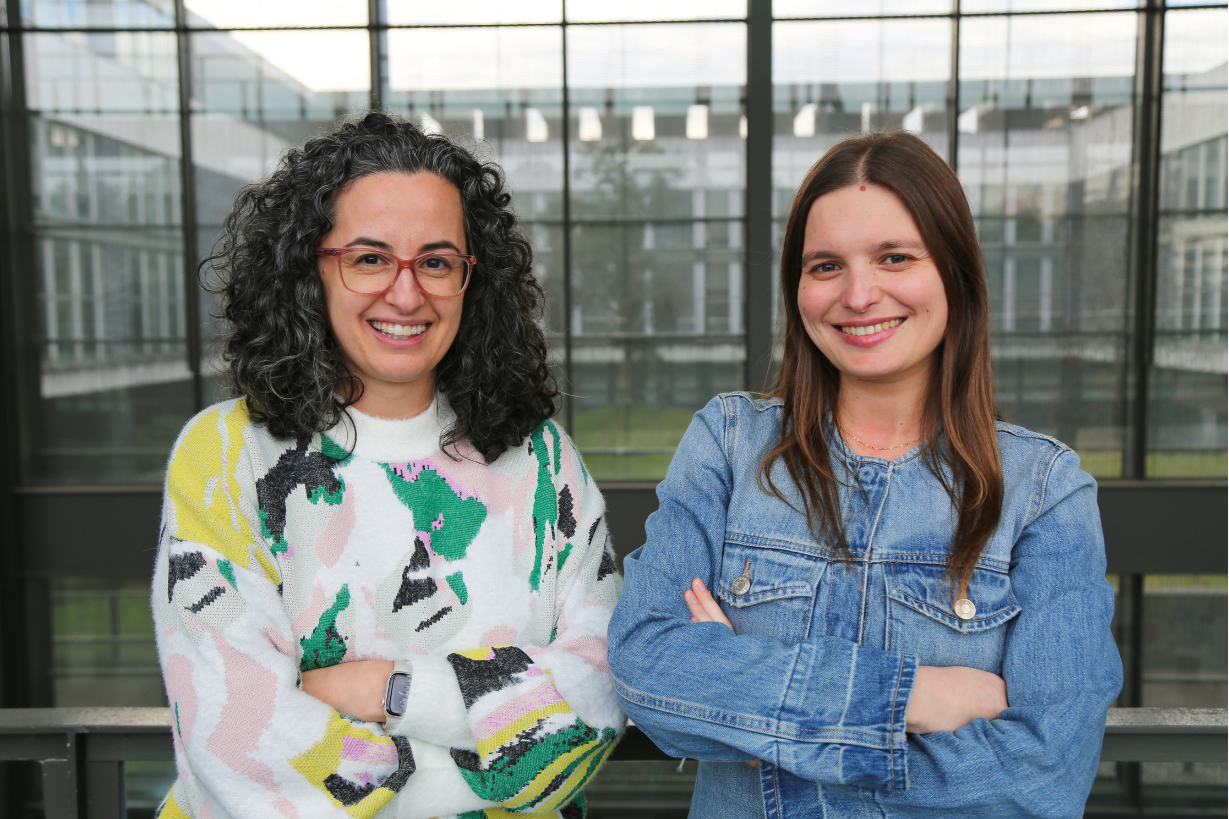Three researchers from ICVS have been awarded ESCMID grants for their research into infectious diseases and immunology. João do Canto Gomes, Samuel Gonçalves and Vitória Baptista will receive support to advance their innovative projects.
João do Canto Gomes: EBV’s Role in Multiple Sclerosis
João do Canto Gomes is studying the role of Epstein-Barr virus (EBV) in multiple sclerosis (MS). His project will focus on CD8+ T lymphocytes and their ability to recognize and eliminate EBV-infected cells. João aims to identify T cell receptors (TCRs) that could contribute to new therapeutic strategies for EBV-associated diseases, including MS.
João commented, “Securing ESCMID funding for this project constitutes a significant boost to my career. In addition to providing an opportunity to make a meaningful contribution to the field, it will allow me to solidify my own line of research.”

João do Canto Gomes
Samuel Gonçalves: Cholesterol’s Role in Antifungal Immunity
Samuel Gonçalves will investigate how cholesterol metabolism influences antifungal immunity, particularly in macrophages, to improve understanding of susceptibility to invasive pulmonary aspergillosis (IPA). This life-threatening fungal infection has a high mortality rate, especially among immunocompromised patients.
Samuel explained, “This grant will provide an excellent opportunity to improve our understanding of how metabolic networks coordinate immune cell function, ultimately paving the way for innovative therapeutic approaches for fungal infections. Moreover, the results generated will consolidate my line of research within the field and place me in an excellent position to further progress in my career.”

Samuel Gonçalves
Vitória Baptista: Investigating Malaria Parasite Detoxification Mechanisms
Vitória Baptista, working at Isabel Veiga’s Lab, will explore how the malaria parasite Plasmodium falciparum detoxifies hemoglobin through hemozoin formation. Her research will focus on lipid-associated proteins involved in this process. “This pathway is vital for the parasite, yet it remains poorly understood,” says Isabel Veiga, Principal Investigator at ICVS. By delving into the molecular mechanisms behind hemozoin formation, they hope to uncover new drug targets to disrupt the parasite’s life cycle.
Vitória, reflecting on the importance of the ESCMID grant, expressed, “I am truly grateful for this ESCMID grant, which provides crucial support at this stage of my career. This project will allow us to explore new aspects of P. falciparum’s biology, particularly in lipid metabolism and its role in hemozoin formation, that could improve treatment strategies.”

From left to right: Isabel Veiga and Vitória Baptista
These projects showcase ICVS’s dedication to advancing medical research and addressing pressing global health challenges. The ESCMID grants will support these researchers’ careers and help move their work forward.
About ESCMID Grants
The ESCMID grants are highly competitive awards designed to support innovative research in clinical microbiology and infectious diseases. By funding groundbreaking studies, ESCMID helps drive scientific progress and improve patient outcomes worldwide.








